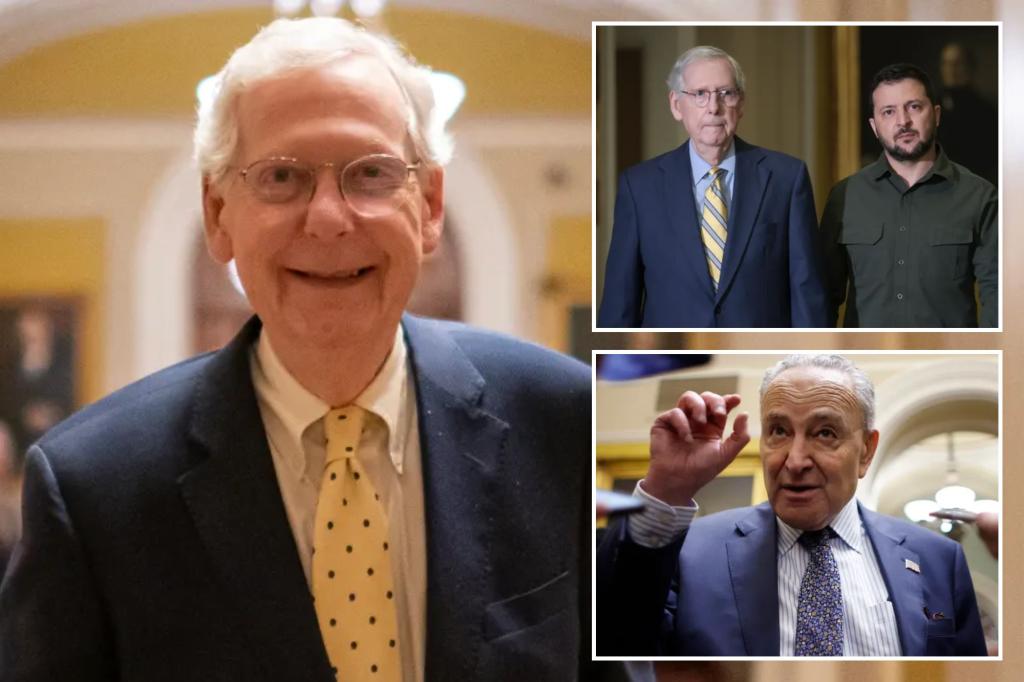Senate Minority Leader Mitch McConnell expressed concerns about the state of world affairs while pledging to serve out the remainder of his term in the Senate. He emphasized his mission to push back against isolationists within the GOP, stating that he will focus on this for the next couple of years. McConnell highlighted the dangerous time Americans are living in, comparing it to the period before the fall of the Berlin Wall.
McConnell acknowledged that his party tends to lean towards isolationism when there is a Democrat in the White House, citing historical examples such as opposition to Lend-Lease before World War II. While he announced that he will not seek another term as Senate Republican leader, he expressed support for the idea of flipping the Senate to Republican control in the upcoming elections. McConnell also encouraged House Republicans to pass a supplemental aid package to support Ukraine in its conflict with Russia.
The race to replace McConnell as Senate Republican leader is underway between current Senate GOP Whip John Thune and Sen. John Cornyn. McConnell voiced his desire for his successor to become the majority leader, reinforcing the goal of Republicans taking control of the Senate. He underscored the importance of modernizing and bolstering the military in response to the invasion of Ukraine, stating that this situation has provided an opportunity to strengthen national defense capabilities.
McConnell criticized President Biden and Senate Majority Leader Chuck Schumer for their handling of the situation involving Israeli Prime Minister Benjamin Netanyahu. He disagreed with their stance on the conflict in Gaza and called for respect for the democratic process in Israel. McConnell argued against the interference of American officials in Israeli affairs, emphasizing the importance of supporting democratic decision-making processes in foreign countries.
The 82-year-old senator did not reveal his plans for a potential eighth term, but focused on his responsibilities in the Senate and his commitment to counter isolationist tendencies within the GOP. McConnell’s long tenure as Senate Republican leader came to an end in late February, setting the stage for a new leader to emerge. He highlighted the need for strong leadership in the Senate and emphasized the significance of supporting Ukraine in its conflict with Russia.
In conclusion, McConnell’s statements underscore the complex challenges facing the United States and the world at large. His perspective on foreign policy, party dynamics, and leadership transitions provide insight into the current political landscape. McConnell’s experience and influence in the Senate continue to shape the discourse on crucial issues such as international relations, national security, and party unity.


